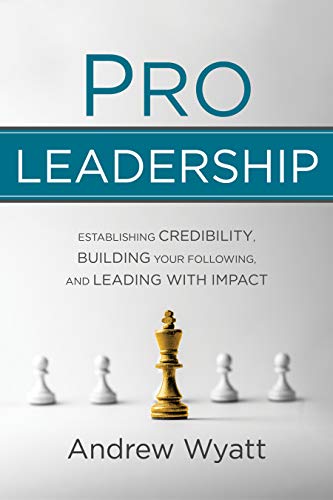
5.13.21 – CI
AV business leaders must get in touch with their emotional sides to ensure they connect with and properly guide their teams.
In many ways, being an effective leader boils down to your ability to influence people—a proficiency that is driven by your Emotional Intelligence Quotient (EQ), according to author Andrew Wyatt.
Leadership is more about soft skills—the ability to inspire, persuade, guide, sway and communicate in a way that’s “heard” rather than just “listened to”—than it is about being the best relative to hard skills, he says in his new book, “Pro Leadership: Establishing Your Credibility, Building Your Following and Leading with Impact.”
As a leader, if you do not understand your team’s motivations and feelings, you will never be able to establish an optimally functioning team and reap the copious rewards, says Wyatt. The result is needless opportunity loss.
Because many in the AV industry come into the business after earning degrees in some form of engineering, they aren’t always as adept at focusing on their emotional intelligence, but in today’s business world, it’s a critical piece of being an especially effective leader.
To become more adept at such soft management skills, leaders can actively work to improve their EQ. This effort starts with understanding your own emotions and triggers. What motivates and demotivates you, evokes feelings of stress or satisfaction, compels you to go “above and beyond” or not participate at all?
You can conduct these inner exploration exercises on your own in a journal or daily walk, perhaps, while some leaders amp up the effort by conducting self-assessments with a coach, mentor or therapist.
“If you are to lead with maximum efficacy, you must build an enthusiastic following,” says Wyatt. “This requires relational and people skills as well as all of the related soft skills that contribute to one’s EQ. A leader cannot staff EQ out. You must to have it yourself. Those who don’t will need to develop it to realize truer and more unencumbered success.”
Why Emotional Intelligence is Critical
Unlike IQ, which pretty much is what it is, EQ can be nurtured, developed and increased, says Wyatt. Pro leaders must have the ability to influence others to follow them, and the most important ingredient in influence is relationship, he says.
The key to a winning relationship is winning the heart, and doing so is not possible without EQ, says Wyatt. You may have a high IQ and natural giftedness in your vocation, but if you are unable to influence others—you may be effective as a manager—you will never be a leader, he says.
But EQ alone won’t be enough, says Wyatt. In fact, it must be balanced with IQ. Although IQ is not a natural leader attribute, and as a result is best relegated to the back seat, it is important to the success of any enterprise.
Your role as leader will be to balance both EQ and IQ, to manage the balance and tension between the two. That balancing act will be manifested through how your team works together.
No matter what your own EQ level is, ongoing personal development is always important, says Wyatt. Read all you are able to find on the topic. Second, if you don’t have one, consider working with a coach. Third, join a peer group or start one yourself.
“Developing EQ is not a solo sport,” says Wyatt. “You will need to have some people to rub up against. Leadership is a lonely business; you need to have someone to talk to, a safe environment to share and people who will tell you the last 10 percent—that bit of information most people won’t tell you.”
About the Author

D. CRAIG MACCORMACK, Executive Editor
Contact:
Craig MacCormack is a veteran journalist with more than 25 years of experience covering local and national news and sports as well as architecture and engineering before moving into his current role. He joined Commercial Integrator in January 2011.


